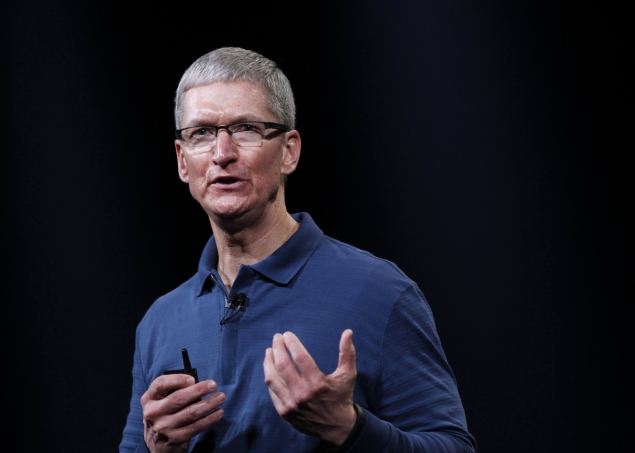- Home
- Others
- Others News
- Apple fires back at Einhorn, reveals high level meeting details
Apple fires back at Einhorn, reveals high-level meeting details

Apple Chief Financial Officer Peter Oppenheimer described in the filing how, during a discussion with Einhorn and Apple CEO Tim Cook on February 6, Einhorn opposed the so-called "Proposal No. 2", which would remove an existing system for issuing preferred shares at the company's sole discretion, without having to get shareholders' approval.
Einhorn "viewed requiring shareholder approval for his proposal as a 'roadblock that was not needed'," Oppenheimer declared in the filing. "He said that he wanted to 'take the risk away' of a shareholder vote and asked 'why make it harder?'
"We told Mr. Einhorn that Apple was considering his proposal, but that the Board would not issue his proposed perpetual preferred shares without shareholder approval," Oppenheimer added in his legal declaration.
Einhorn did not immediately respond to requests for comment.
Einhorn's Greenlight Capital sued Apple last week in U.S. District Court in Manhattan, hoping to block a February 27 shareholders' vote on Proposal No. 2.
Instead, Einhorn wants Apple to issue perpetual preferred stock with a 4 percent dividend to existing shareholders, part of his broader pitch for the company to send more of its $137 billion cash hoard investors' way.
Apple has said it will carefully consider that "creative" idea.
In Wednesday's motion, Apple also challenged Einhorn's assertion that it had "bundled" three different proxy proposals into one, in violation of U.S. Securities and Exchange Commission rules.
Proposal No. 2 also seeks to amend Apple's articles of incorporation by providing for majority voting for directors, and establishing a par value for Apple stock.
"Bundling occurs when discrete, material proposals are combined in a manner that puts shareholders to an unfair choice," Apple said. "That is not the case here."
Apple said in Wednesday's motion it had initiated the proposal in response to a report by influential proxy adviser Institutional Shareholder Services. The firm said this week that so-called "blank check" preferred stock issued without shareholder approval could be abused as a takeover defense.
"This report reflected a view widely held by shareholder advocates that corporate boards should not have 'blank check' authority to issue preferred shares," Apple said.
A hearing in the case is scheduled for February 19.
The case is Greenlight Capital LP, et al., v. Apple Inc., U.S. District Court, Southern District of New York, 13-900.
© Thomson Reuters 2013
For the latest tech news and reviews, follow Gadgets 360 on X, Facebook, WhatsApp, Threads and Google News. For the latest videos on gadgets and tech, subscribe to our YouTube channel. If you want to know everything about top influencers, follow our in-house Who'sThat360 on Instagram and YouTube.
Related Stories
- Samsung Galaxy Unpacked 2025
- ChatGPT
- Redmi Note 14 Pro+
- iPhone 16
- Apple Vision Pro
- Oneplus 12
- OnePlus Nord CE 3 Lite 5G
- iPhone 13
- Xiaomi 14 Pro
- Oppo Find N3
- Tecno Spark Go (2023)
- Realme V30
- Best Phones Under 25000
- Samsung Galaxy S24 Series
- Cryptocurrency
- iQoo 12
- Samsung Galaxy S24 Ultra
- Giottus
- Samsung Galaxy Z Flip 5
- Apple 'Scary Fast'
- Housefull 5
- GoPro Hero 12 Black Review
- Invincible Season 2
- JioGlass
- HD Ready TV
- Laptop Under 50000
- Smartwatch Under 10000
- Latest Mobile Phones
- Compare Phones
- Moto G15 Power
- Moto G15
- Realme 14x 5G
- Poco M7 Pro 5G
- Poco C75 5G
- Vivo Y300 (China)
- HMD Arc
- Lava Blaze Duo 5G
- Asus Zenbook S 14
- MacBook Pro 16-inch (M4 Max, 2024)
- Honor Pad V9
- Tecno Megapad 11
- Redmi Watch 5
- Huawei Watch Ultimate Design
- Sony 65 Inches Ultra HD (4K) LED Smart TV (KD-65X74L)
- TCL 55 Inches Ultra HD (4K) LED Smart TV (55C61B)
- Sony PlayStation 5 Pro
- Sony PlayStation 5 Slim Digital Edition
- Blue Star 1.5 Ton 3 Star Inverter Split AC (IC318DNUHC)
- Blue Star 1.5 Ton 3 Star Inverter Split AC (IA318VKU)

















